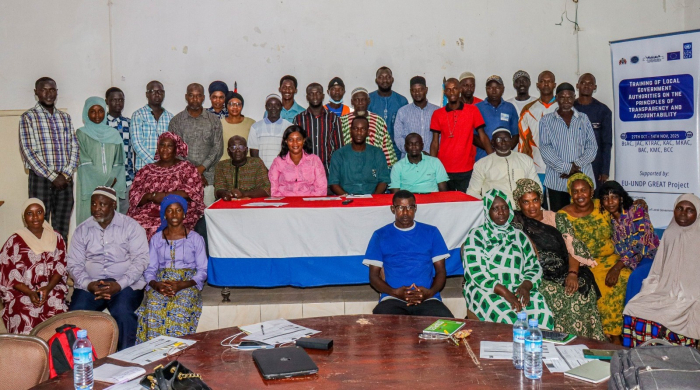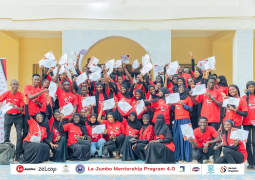
Launched at the Basse Area Council on Monday, the training designed to promote transparency and accountability attracted all eight local government authorities.
Supported by the European Union (EU) and the United Nations Development Programme (UNDP) through the jointly funded GREAT Initiative, the sessions aim to enhance public service delivery and build citizen trust in local governance.
In light of the scrutiny surrounding The Gambia's decentralised system, this training aligns with national efforts aimed at bolstering democracy and meeting global objectives for peace and justice.
Addressing the participants at Basse Area Council, Mahamadou Ceesay, GALGA President, emphasised the critical need for reform, stating that transparency is not an option; rather it is the foundation of effective governance.
"By holding ourselves accountable, we ensure that every decision serves the people."
The training, he added, would foster unity among the Local Councils, highlighting GALGA and its members' commitment to enhancing transparency and accountability in community service.
“Local governments in The Gambia play a vital role in connecting national policies with the realities citizens face, directly impacting their lives through essential services and development initiatives.”
Transparency in governance involves making information accessible, he added, clarifying decision-making, and ensuring open processes, which fosters trust and encourages citizen participation in democracy.
“Accountability ensures that leaders are responsible for managing public resources, promoting integrity, minimising mismanagement, and supporting equitable growth.”
GALGA Programme Manager Amadou Jallow detailed the program's structure, mentioning that participants will take part in interactive sessions regarding digital tools for accountability and case studies from real-world scenarios.
“This initiative will prepare Local Councils’ staff to build resilient communities and lessen vulnerabilities to corruption.”
Ejatou Jallow, a Councillor from Basse Ward and one of the participants, expressed her enthusiasm, stating, "As someone representing a ward, I witness how transparency can change lives. This training will aid us in Basse in providing better services and involving our communities in decision-making processes."
Reacting to the development, participants shared their impression with the initiative, noting that that was a step toward the accountable governance The Gambia deserves, while reducing mistrust and encouraging development.
Moreover, the training is expected to yield measurable improvements, such as increased public access to council data and decreased instances of mismanagement.
It reflects The Gambia's commitment to reforms and may serve as a model for addressing transparency and accountability issues within local councils.
As the training continues, it has the potential to redefine local governance in The Gambia, with GALGA leading efforts towards greater openness and responsibility in local governance.





